1. The Personal Computer

Computers were once massive machines reserved for governments and corporations, but that changed in the 1970s with the advent of personal computers. Companies like Apple, IBM, and Microsoft helped bring computing power to the average consumer, revolutionizing productivity and entertainment (you can learn all about it on the IBM page). PCs allowed people to write documents, play games, and access information with unprecedented ease. This shift marked the beginning of the digital age, laying the groundwork for our tech-driven world.
Personal computers didn’t just change individual lives; they transformed entire industries, from education to business to creative arts. They enabled the rise of the internet, social media, and online commerce, shaping the modern economy. Today, nearly every profession relies on computers, making them one of the most indispensable tools in human history. Without them, much of modern life—including this very article—would not be possible.
2. The Airplane
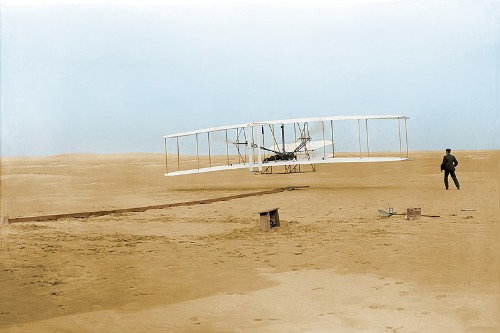
The dream of human flight became a reality in 1903 when the Wright brothers took off in Kitty Hawk, North Carolina, according to the National Air and Space Museum. Their pioneering aircraft, the Wright Flyer, was the first powered, controlled, and sustained flight in history. This invention revolutionized transportation, making it possible to travel across continents in mere hours instead of weeks. Air travel has since connected the world, fueling tourism, business, and globalization on an unprecedented scale.
Beyond convenience, airplanes have been essential in shaping modern warfare, emergency response, and cargo transport. The aviation industry has also driven advancements in aerodynamics, engineering, and even space exploration. Today, air travel is a cornerstone of the global economy, supporting millions of jobs and industries. The world as we know it simply wouldn’t function without the ability to fly.
3. The Light Bulb
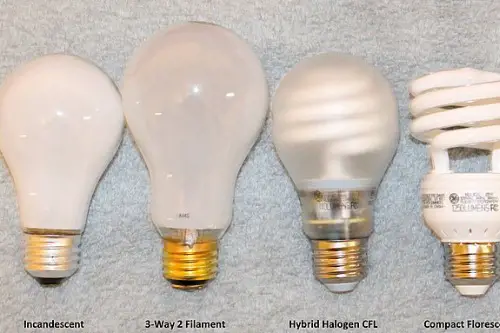
Before the electric light bulb, people relied on candles, gas lamps, and oil lanterns to see after dark. Thomas Edison and his team perfected the first long-lasting incandescent light bulb in 1879, transforming the way we live and work, the Department of Energy explains. This invention extended productivity beyond daylight hours, revolutionizing industries and modernizing cities. The ability to generate reliable artificial light also paved the way for the electrical infrastructure we now take for granted.
Electric lighting improved safety, efficiency, and convenience in homes, workplaces, and public spaces. It enabled night shifts in factories, powered theaters and sporting events, and made streets safer after dark. Edison’s invention didn’t just bring light—it illuminated the path for countless other technological advances. The modern world, from skyscrapers to smartphones, owes much to this simple yet essential invention.
4. The Telephone
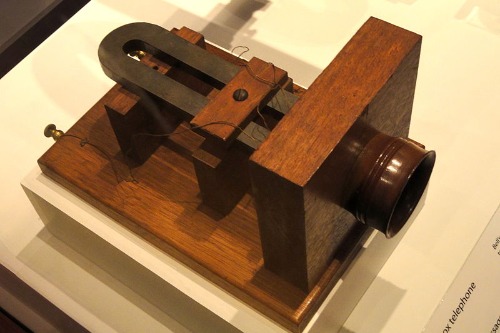
In 1876, Alexander Graham Bell revolutionized communication with the invention of the telephone, Elon University explains. For the first time, people could talk to each other across long distances instantly instead of waiting days or weeks for written correspondence. This breakthrough transformed business, diplomacy, and personal relationships, making the world feel smaller and more connected. Telephones quickly became a necessity, forever changing the way we interact.
Over time, telephones evolved from bulky rotary models to sleek, wireless smartphones. Today, they are an essential tool for nearly every aspect of daily life, from socializing to navigating to working remotely. The telephone laid the foundation for modern telecommunications, influencing everything from the internet to video calls. Without this invention, the world’s infrastructure and economy would be unrecognizable.
5. The Internet

The internet as we know it today stems from ARPANET, a U.S. Department of Defense project launched in the 1960s. What started as a military communication network evolved into a global system that connects billions of people and devices. The internet has transformed nearly every aspect of society, from how we work and learn to how we shop and socialize. It has also created entire industries, making information instantly accessible and enabling real-time communication worldwide.
Without the internet, modern conveniences like e-commerce, cloud computing, and social media wouldn’t exist. It has revolutionized healthcare, finance, entertainment, and even governance, making information more democratic and accessible. The digital economy, worth trillions of dollars, thrives because of this invention. Simply put, the world would grind to a halt without the internet.
6. The Assembly Line
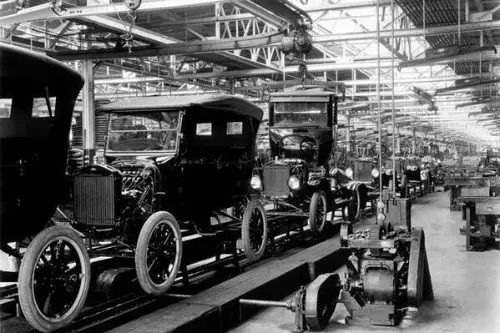
Henry Ford didn’t invent the car, but he changed the world by developing the moving assembly line in 1913. His innovation drastically reduced the time and cost of manufacturing, making automobiles affordable for the average American. This method allowed factories to mass-produce goods quickly and efficiently, sparking an industrial revolution that shaped modern consumer culture. The assembly line transformed not just the auto industry but also electronics, clothing, and countless other sectors.
Beyond economics, the assembly line influenced labor practices, leading to standardized work shifts and improved wages. It set the precedent for modern automation, robotics, and lean manufacturing, which continue to drive efficiency in global production. Today, nearly everything we use—from smartphones to kitchen appliances—is built using this method. Without it, everyday goods would be far more expensive and less accessible.
7. The Microwave Oven
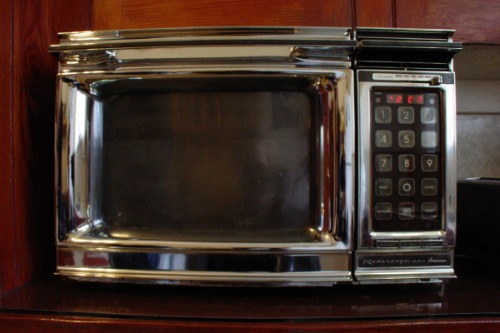
The microwave oven was discovered accidentally in the 1940s by American engineer Percy Spencer while working with radar technology. He noticed a chocolate bar melting in his pocket and realized that microwaves could heat food quickly and efficiently. This led to the creation of the first microwave oven, which revolutionized home cooking by making meal preparation faster and more convenient. By the 1970s, microwaves had become a staple in kitchens around the world.
Microwaves didn’t just change how we cook; they reshaped food production and consumption habits. They made frozen dinners popular, introduced new convenience foods, and even influenced restaurant and catering industries. Today, millions rely on microwaves for quick meals, proving their indispensability in modern life. Without this invention, our fast-paced world would struggle to keep up with mealtime demands.
8. The GPS

The Global Positioning System (GPS) was developed by the U.S. Department of Defense in the 1970s and made available to the public in the 1980s. Originally designed for military navigation, it has since become an essential tool for civilians worldwide. GPS allows us to pinpoint our exact location anywhere on Earth, making travel, logistics, and emergency response more efficient. It’s the technology behind navigation apps, ride-sharing services, and even autonomous vehicles.
Beyond convenience, GPS has revolutionized industries like agriculture, aviation, and disaster relief. Farmers use it for precision planting, pilots for safe landings, and rescuers for locating people in danger. This technology is now embedded in smartphones, smartwatches, and countless devices, making it an integral part of daily life. Without GPS, modern transportation and communication networks would be far less efficient.
9. The Internet Search Engine

The internet contains an overwhelming amount of information, and search engines make it usable. In the 1990s, Google—founded by American entrepreneurs Larry Page and Sergey Brin—perfected the search algorithm that changed everything. With a simple query, users could instantly find relevant web pages, answers, and resources. This innovation transformed how we access and process knowledge, making information more democratic than ever.
Search engines aren’t just about convenience; they power digital marketing, research, and even artificial intelligence. They have reshaped journalism, education, and business by making real-time data accessible worldwide. Today, “Googling” is second nature, and without search engines, the internet’s vast resources would be nearly impossible to navigate. In the information age, search engines are as essential as electricity.
10. The Credit Card

Introduced in the 1950s by American financial institutions, the credit card revolutionized how people spend and manage money. Before its invention, large purchases required carrying significant amounts of cash or writing checks, which was inconvenient and risky. Credit cards made transactions seamless, allowing users to buy now and pay later while building financial history. Over time, they became essential for travel, online shopping, and even emergency expenses.
Beyond convenience, credit cards reshaped global commerce by enabling secure, traceable transactions. They paved the way for rewards programs, digital banking, and modern financial technology, influencing the rise of mobile payments. Today, credit cards power a cashless economy, making purchasing easier and more accessible worldwide. Without them, modern banking and e-commerce would not be as efficient or widespread.
11. The Polio Vaccine

In the early 20th century, polio was one of the most feared diseases, crippling thousands of children each year. That changed in 1955 when American virologist Dr. Jonas Salk developed the first effective polio vaccine. His breakthrough led to mass immunization campaigns, dramatically reducing polio cases worldwide. The vaccine’s success helped lay the foundation for future disease eradication efforts and public trust in vaccines.
Salk’s vaccine not only saved millions of lives but also demonstrated the power of scientific research in public health. Later, Albert Sabin developed an oral polio vaccine, making immunization even more accessible. Thanks to these advancements, polio has been nearly eradicated in most parts of the world. Without this American medical innovation, polio would still be a devastating global threat.
12. The Super Soaker

At first glance, the Super Soaker might seem like just a fun toy, but its impact goes beyond summer entertainment. Invented in 1989 by NASA engineer Lonnie Johnson, this high-powered water gun revolutionized outdoor play. Unlike traditional squirt guns, the Super Soaker used air pressure to blast water farther and stronger, making it an instant hit. It became one of the best-selling toys of all time, proving that even a simple idea can bring widespread joy.
Beyond its cultural significance, the Super Soaker is a testament to American ingenuity and innovation. Johnson used his engineering expertise to create something unique, later applying his knowledge to renewable energy projects. His success paved the way for other inventors to transform everyday objects into game-changing products. Without the Super Soaker, summer fun just wouldn’t be the same.
13. Social Media

Social media, pioneered by American companies like Facebook (now Meta), Twitter, and Instagram, has transformed how people connect and communicate. What started as simple online networking quickly grew into a global phenomenon, reshaping business, politics, and culture. These platforms allow users to share thoughts instantly, build communities, and spread information at an unprecedented scale. From viral trends to political movements, social media has become a defining force of modern society.
While it has its controversies, social media is undeniably one of the most influential inventions of the 21st century. It has created new job markets, revolutionized marketing, and given a voice to individuals across the globe. Businesses rely on it for branding, governments use it for communication, and people use it to stay connected across distances. Without social media, our digital world would be far less interactive and interconnected.
14. The Artificial Heart

In 1982, American scientist Dr. Robert Jarvik created the first permanent artificial heart, the Jarvik-7, giving hope to patients with severe heart failure. This groundbreaking medical device provided a lifeline for those awaiting heart transplants, proving that technology could extend human life. Though early models were temporary solutions, they paved the way for modern artificial heart designs. Today, artificial hearts continue to evolve, offering improved quality of life for countless patients.
Beyond saving lives, the artificial heart pushed the boundaries of medical engineering and bioethics. It demonstrated the potential of biomechanical advancements in organ replacement, leading to developments in artificial kidneys, lungs, and more. Research continues to refine these devices, with some patients now living years with artificial hearts. Without this American invention, many facing heart failure would have no options for survival.
15. Air Conditioning

Modern life as we know it would be unbearable in many parts of the world without air conditioning. Invented by American engineer Willis Carrier in 1902, air conditioning transformed how people live, work, and build cities. Initially designed to control humidity in a printing plant, it soon spread to homes, offices, and public spaces, making hot climates more livable. The rise of air conditioning fueled economic growth, particularly in regions like the American South and the Middle East.
Beyond comfort, air conditioning has had a profound impact on healthcare, food preservation, and technological industries. Hospitals, data centers, and manufacturing plants rely on it to maintain critical environments. It has even shaped architecture, allowing for skyscrapers and enclosed shopping malls to thrive. Without this invention, many modern conveniences—and even entire cities—would struggle to exist in extreme temperatures.


